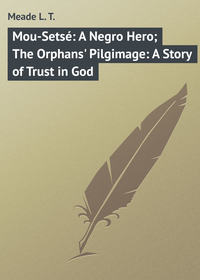Kitabı oku: «Mou-Setsé: A Negro Hero; The Orphans' Pilgimage: A Story of Trust in God», sayfa 4
Bir şeyler ters gitti, lütfen daha sonra tekrar deneyin
Türler ve etiketler
Yaş sınırı:
12+Litres'teki yayın tarihi:
19 mart 2017Hacim:
50 s. 1 illüstrasyonTelif hakkı:
Public Domain